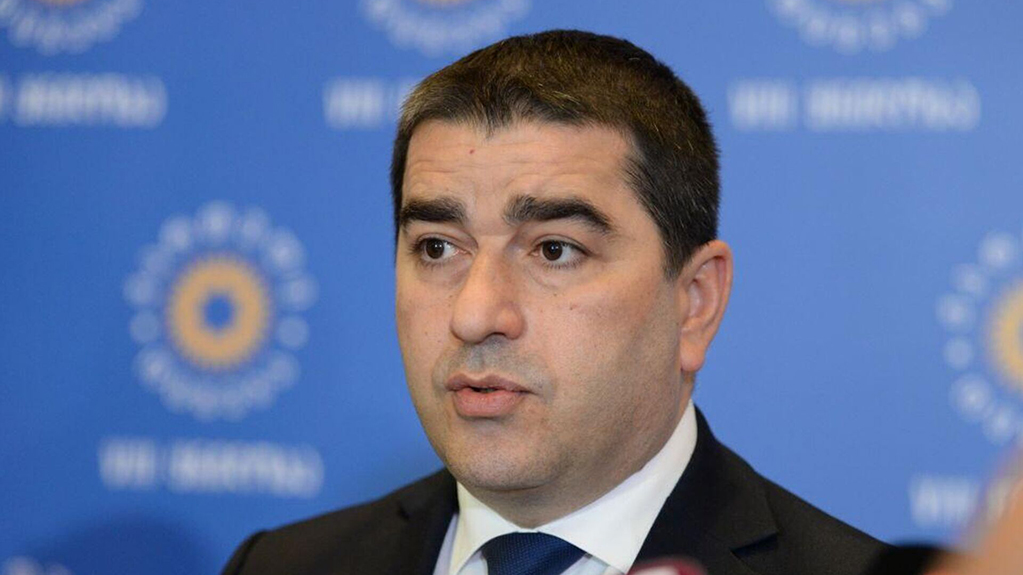The Speaker of Parliament, Shalva Papuashvili, has once again attacked Gela Mtivlishvili, the editor of the publication Mtis Ambebi for his coverage of the Shovi tragedy. Papuashvili also criticized international organizations working on journalists' rights. Last week, these organizations called on the leadership of the ruling party and the Speaker of Parliament to immediately cease personal attacks on journalists and the discrediting campaign against them.
News
Trending stories
- 1 Former Prime Minister Garibashvili Sentenced to Five Years in Prison After Plea Deal
- 2 Otar Partskhaladze Charged with Organizing Murder of Businessman Levan Jangveladze
- 3 Shalva Papuashvili Says Georgian Dream Filed Complaint with BBC
- 4 Georgian Dream Party Further Tightens Grants Law, Introducing Up to 6 Years in Prison
“The partners of the Media Freedom Rapid Response stated that my comments about journalist Gela Mtivlishvili were "part of a general wave of campaign to destroy the name of independent media in Georgia." It should be noted that these accusations are misinformation about media freedom in Georgia in general, and about my comments in particular,” Papuashvili wrote on social media and once again accused Gela Mtivlishvili of unfair coverage of the Shovi tragedy.
"In many of my statements, I have noted that, last August, Mtivlishvili's coverage of the Shovi disaster contained unverified information, which raised doubts about his honesty and professionalism. Later, an independent Swiss organization, which studied the causes of the disaster, confirmed the initial conclusion of the National Environment Agency and thereby proved that Mtivlishvili's claims were not true. He claimed that if there was an early warning system, the tragedy would not have happened. However, time and time again, impartial experts have said the opposite: no system could have provided sufficient advance warning of a disaster of this magnitude.
It is true that Mtivlishvili's case alleging that the Georgian government failed to prevent the tragedy was finally dropped. However, his false assumptions from the epicenter of the disaster, which were presented to the public as facts, aggravated the already difficult situation in which the victims of the disaster and their grieving families found themselves. His reporting of the disaster was far from journalistic standards and human empathy. However,
this did not prevent him from later turning his "discoveries" into a film titled investigative journalism, which even earned praise from some foreign agencies.”
According to the Chairman of the Parliament, criticizing such "journalistic product" is even their obligation in order to prevent "future attempts of disinformation."
Papuashvili writes that Georgia is a free country for journalists, but this does not mean that they are free to spread disinformation.
"Every time they allow inaccuracy, they will receive criticism, and that's normal. Organizations that are interested in media freedom, in addition to criticizing the government, should also be interested in journalists' commitment to the truth so that their profession is not discredited.
Unfortunately, none of the journalistic organizations even tried to find out the truth; they defended Mtivlishvili in that way. This seems to have been done as a show of journalistic solidarity, without any thought of putting corporate solidarity ahead of the public's right to receive correct information. However, what is the value of journalism that distorts information? This particular case is a good illustration of the need for the Georgian "critical" media and their foreign partners.
Criticism of journalists should be accepted as normal in a democratic society. Overzealous foreign organizations try so hard to 'expose' violations of media freedom that they consider any, even fair, criticism of the media as 'public discrediting' of a particular journalist or media outlet," Papuashvili wrote.
The Media Freedom Rapid Response (MFRR), to which Shalva Papuashvili responded, is a project supported by the European Commission. It responds to violations of press and media freedom in EU member and candidate countries.
On March 13, MFRR's partner organizations, including the International Press Institute and the European Federation of Journalists, responded to the statement made by the Speaker of the Parliament of Georgia on February 20. They addressed his attempt to discredit Gela Mtivlishvili and his demand for an explanation regarding how the journalistic investigation prepared by the editor of Mtis Ambebi about the Shovi tragedy made it to the finals of the European Union Prize.















